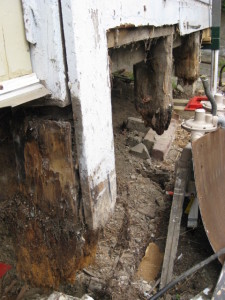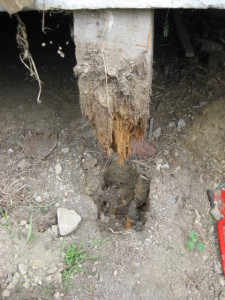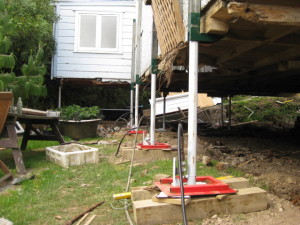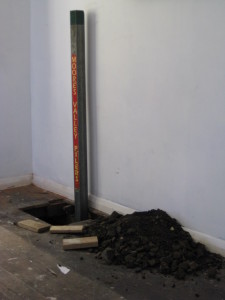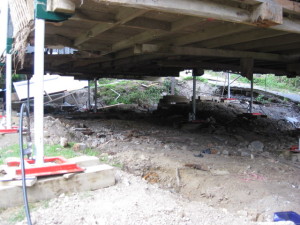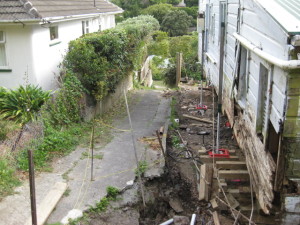There is a Problem With the Building Inspection! What Should I Do?
Written by Claire on . Posted in Building Inspection, House Buying Information, Making an Offer
The first thing you need to do when your building inspection identifies a problem is to work out how serious the problem is – a good person to question initially is the person who did your building inspection – you need to make sure that you fully understand the problem that they have identified.
Building Inspection Problem? Get a Specialist Building Advice
A building inspector is not an expert in all aspects of building so if a particular problem has been identified and the building inspector has indicated that they cannot tell you the extent of the problem or the cost to fix - it is best to speak to, or get quotes from, an expert in the area.
Say the piles are a problem – speak to a replier – they will be able to assess the extent of the problem and give you a quote for the remedial work.
Now you are in a position to start making decisions depending on your situation...
I Have a Signed Sale and Purchase Agreement
You may have gotten the building inspection as part of working through the conditions on a sale and purchase agreement. If you are not happy with the building inspection:
- You are now legally entitled to cancel the agreement. To do this you tell your lawyer, and usually the real estate agent that you are not going unconditional based on an unsatisfactory building inspection. This can be a very hard decision to make as by this stage you have invested time, money, and emotion in the house, but in many cases it is the best decision.
- You can re-negotiation the price of the house with the vendor. Go into negotiations with quotes for remedial work in hand – and bargain hard! Don't forget, it always pays to budget for some extras!
- You can ask the vendor to fix what is wrong before you buy the house. Especially if the problem is fairly easy to fix i.e. a few hours work by a plumber or electrician this is often a good solution. If the problem is major – the vendor will rarely agree to fix it.
- You may still be happy to proceed with purchasing the house at the agreed price - and you still can. Perhaps none of what was identified in the building inspection is a surprise, or you now know why the house was a reasonable price from the beginning! Before proceeding double check your numbers, make sure you are happy with the amount you are going to have to pay in repairs and renovation, and add a contingency of at least 10%.
If you and the vendor come to an agreement that involves the vendor having to complete work, or the price changes, or anything else at all, this needs to be formalised in the sale and purchase agreement by your lawyer.
Even if the work agreed is small (i.e. rubbish removal or repairing flashing) and seems insignificant to include – the reality is that it will not be done unless the vendor commits to it via the sale and purchase agreement.
I Haven’t Started Price Negotiations
If you have obtained this building inspection before even beginning negotiations on a house that you are interested in you have similar options:
- You can walk away – the house is not suitable anymore – move on!
- You can start price negotiations fully armed with exactly what is going on with the house. This is a much stronger bargaining position then if a price had already been agreed and a reduction was being negotiated. It is hard for people to comprehend that seemly overnight their house price has decreased significantly.
- You can start negotiations from the beginning with a condition that lists things for the vendor to fix before you will settle on the house – again, if the problems are extensive - this can be a very short negotiation!
Sometimes the extent of the remedial work needed to fix a problem identified by a building inspection can not be worked out exactly by a ‘surface only’ examination by a building inspector or tradesman i.e. extent of rot given evidence of rotten weatherboards.
In these situations you will only be able to get an estimate of the cost of fixing – as a lot will depend on the extent of the problem and this will only be known when the remedial work starts.
It is up to you here to make a decision based on how much of a risk you want to take! In these cases, if you are not comfortable with what can potentially be an unknown, and large, expense it is best to walk away.
The Propertytoolbox Home Buyers Guide
The information you have just read about building inspection problems has been added to the Propertytoolbox house buying guide - An essential resource for house buyers in New Zealand. Find out more about house buying in New Zealand here.





